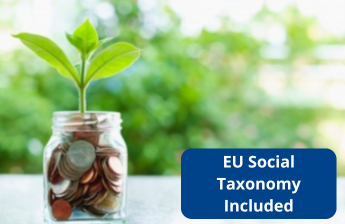- Understand the business case for sustainability and Net Zero
- Align with key frameworks such as CSRD/ESRS, IFRS S1 & S2, SASB and TCFD
- Design and implement effective ESG and climate strategies across your organization
-
Cyber Week 30%

Online Certificate on Sustainability (ESG) Reporting
Self-paced RecordedThe CPD-accredited course provides professionals with the tools and frameworks needed to master ESG reporting and sustainability disclosure based on global standards.
Add to cart 20-25 Hours
20-25 Hours
-
Cyber Week 30%

Online Certificate on Carbon Reduction and Net Zero Strategies
Self-paced RecordedGain practical skills to design and implement effective carbon reduction strategies aligned with international standards.
Add to cart 20-25 Hours
20-25 Hours
-
Cyber Week 30%

AI for Business Professionals (AIBIZ™) – The role of AI in Sustainability
Self-paced RecordedLearn to apply AI tools and insights to drive practical sustainability outcomes through real ESG case studies.
Add to cart 18-20 Hours
18-20 Hours
-
Cyber Week 30%
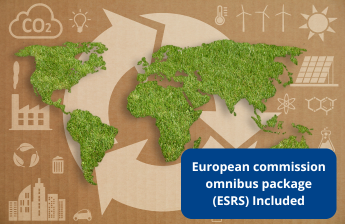
Online Diploma on Corporate Sustainability: Foundation Course
Self-paced RecordedBuild your sustainability expertise with key insights on ESG principles, stakeholder engagement, and reporting frameworks.
Add to cart 20-25 Hours
20-25 Hours
-
Cyber Week 30%
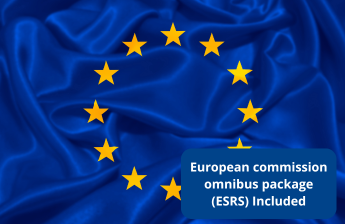
Online Certificate on CSRD & ESRS Standards
Self-paced RecordedMaster the essentials of the CSRD and ESRS, including structure, disclosures, and double materiality.
Add to cart 20-25 Hours
20-25 Hours
-
Cyber Week 30%
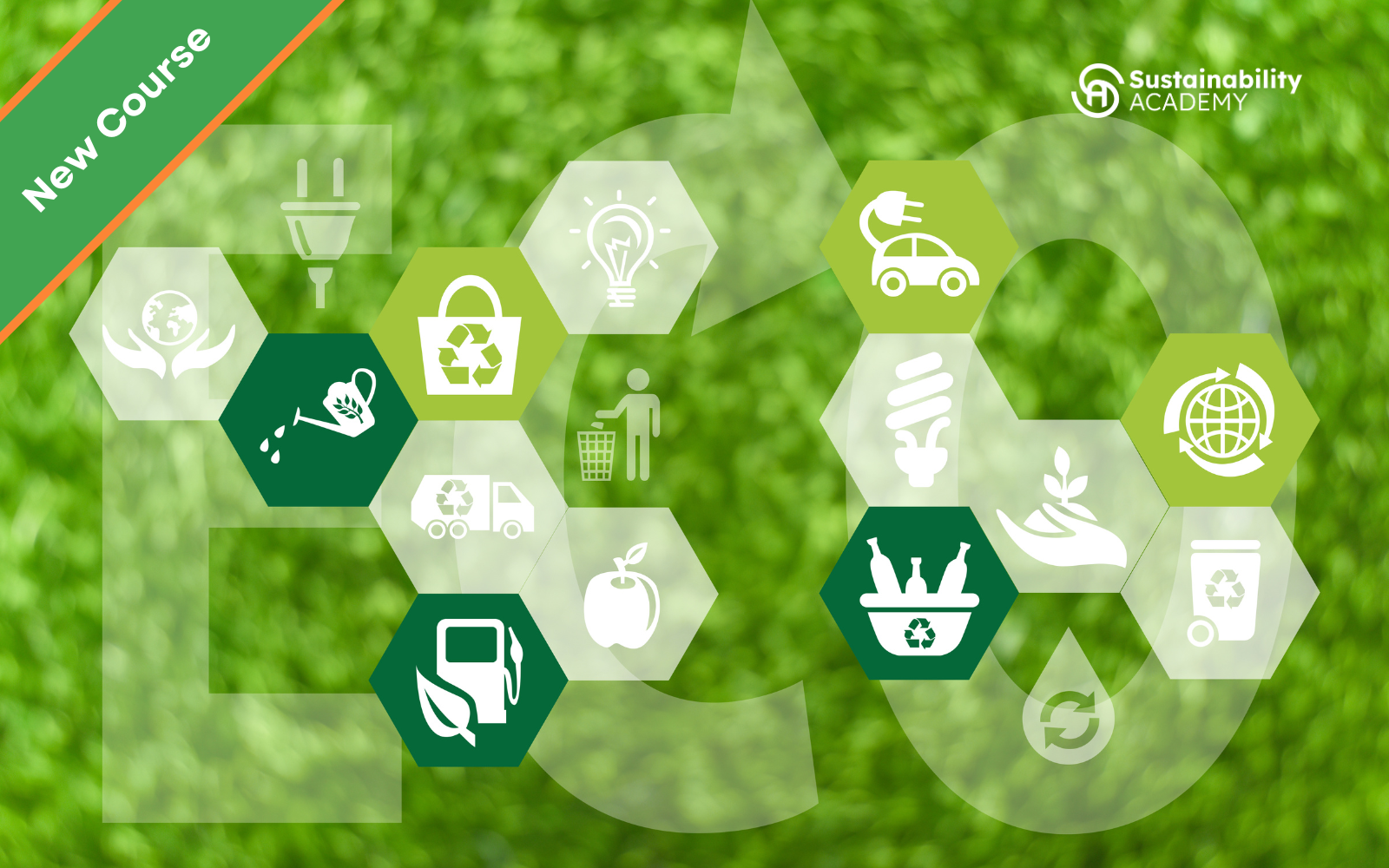
Advanced Course on IFRS S1 & S2 Sustainability Reporting Standards
Self-paced RecordedAdvance your understanding of global sustainability disclosure with the Advanced Course on IFRS S1 & S2 Sustainability Reporting Standards.
Add to cart 20-25 Hours
20-25 Hours
-
Cyber Week 30%

Online Certificate in Renewable Energy Fundamentals: Τhe Path to Net Zero
Self-paced RecordedThis course is ideal for professionals looking to understand the principles of renewable energy, its role in achieving Net Zero targets.
Add to cart 20-25 Hours
20-25 Hours
-
Cyber Week 30%
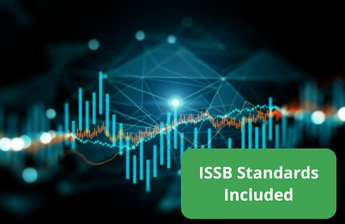
Online Certificate on SASB & TCFD Reporting-Alignment with IFRS S1-S2
Self-paced RecordedLearn to apply SASB Standards, TCFD recommendations, and IFRS S1 & S2 frameworks to strengthen sustainability and climate-related reporting.
Add to cart 20-25 Hours
20-25 Hours
-
Cyber Week 30%

GenAIBIZ™: Making ChatGPT and Generative AI Work for You
Self-paced RecordedLearn how to leverage generative AI tools to boost innovation, automate workflows, and enhance business decision-making across industries.
Add to cart 20-25 Hours
20-25 Hours
-
Cyber Week 30%

Certified Climate Resilient Officer (CRO)
Self-paced RecordedDevelop the skills to assess climate risks, build adaptive strategies, and enhance your organization’s resilience to climate change impacts.
Add to cart 20-25 Hours
20-25 Hours
-
Cyber Week 30%

Online Certificate on Sustainability for Yachting Professionals
Self-paced RecordedExplore sustainable practices in the yachting industry, focusing on environmental management, green technologies, and ESG strategies for maritime operations.
Add to cart 20-25 Hours
20-25 Hours
-
Cyber Week 30%

Online Diploma on Sustainable Supply Chain Management
Self-paced RecordedGain the expertise to build and manage sustainable supply chains, integrating ESG criteria, circular economy principles, and carbon reduction strategies.
Add to cart 20-25 Hours
20-25 Hours
-
Cyber Week 30%

Online Certificate on Green (Sustainable) Marketing
Self-paced RecordedMaster the principles of green and sustainable marketing to create responsible brand strategies, engage conscious consumers, and drive ESG performance.
Add to cart 20-25 Hours
20-25 Hours
-
Cyber Week 30%
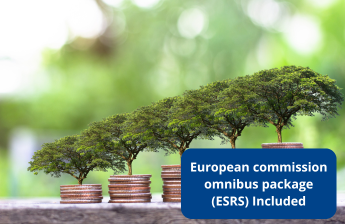
Online Certificate on ESG Ratings and Investments
Self-paced RecordedUnderstand how to evaluate ESG ratings and integrate sustainable investment strategies to enhance financial performance and stakeholder trust.
Add to cart 20-25 Hours
20-25 Hours
-
Cyber Week 30%

Certified Circular Economy Professional
Self-paced RecordedGain advanced knowledge of circular economy principles, global best practices, and business models that promote resource efficiency and sustainability.
Add to cart 20-25 Hours
20-25 Hours
-
Cyber Week 30%

Online Diploma on Social Entrepreneurship
Self-paced RecordedDevelop the skills to launch and manage social enterprises that drive positive environmental and social impact through sustainable business models.
Add to cart 20-25 Hours
20-25 Hours
-
Cyber Week 30%
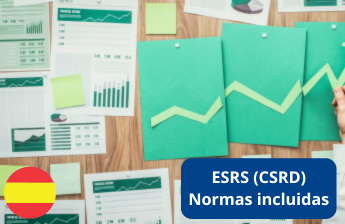
Online Certificate on Sustainability (ESG) Reporting (Spanish Version)
Self-paced RecordedAprende a aplicar las normas ESG y los estándares ESRS actualizados para elaborar informes de sostenibilidad eficaces.
Add to cart 20-25 Hours
20-25 Hours
-
Cyber Week 30%

Online Diploma on Corporate Sustainability: Foundation Course (Spanish Version)
Self-paced RecordedAdquiere los conocimientos clave para integrar la sostenibilidad en la estrategia empresarial y mejorar el desempeño ESG.
Add to cart 20-25 Hours
20-25 Hours
-
Cyber Week 30%

Online Diploma on Corporate Sustainability: Foundation Course (French Version)
Self-paced RecordedAcquérez les compétences essentielles pour intégrer le développement durable dans la stratégie et les opérations de votre entreprise.
Add to cart 20-25 Hours
20-25 Hours
-
Cyber Week 30%

ESG for CFOs, IRs and Fund Managers
Self-paced RecordedGain the insights needed to integrate ESG factors into financial decision-making, risk management, and investment strategies.
Add to cart 20-25 Hours
20-25 Hours
-
Cyber Week 30%

Online Certificate on Carbon Reduction and Net Zero Strategies
Self-paced RecordedGain practical skills to design and implement effective carbon reduction strategies aligned with international standards.
Add to cart 20-25 Hours
20-25 Hours
-
Cyber Week 30%

AI for Business Professionals (AIBIZ™) – The role of AI in Sustainability
Self-paced RecordedLearn to apply AI tools and insights to drive practical sustainability outcomes through real ESG case studies.
Add to cart 18-20 Hours
18-20 Hours
-
Cyber Week 30%

Online Diploma on Corporate Sustainability: Foundation Course
Self-paced RecordedBuild your sustainability expertise with key insights on ESG principles, stakeholder engagement, and reporting frameworks.
Add to cart 20-25 Hours
20-25 Hours
-
Cyber Week 30%

Online Certificate on CSRD & ESRS Standards
Self-paced RecordedMaster the essentials of the CSRD and ESRS, including structure, disclosures, and double materiality.
Add to cart 20-25 Hours
20-25 Hours
-
Cyber Week 30%

Advanced Course on IFRS S1 & S2 Sustainability Reporting Standards
Self-paced RecordedAdvance your understanding of global sustainability disclosure with the Advanced Course on IFRS S1 & S2 Sustainability Reporting Standards.
Add to cart 20-25 Hours
20-25 Hours
-
Cyber Week 30%

Online Certificate on SASB & TCFD Reporting-Alignment with IFRS S1-S2
Self-paced RecordedLearn to apply SASB Standards, TCFD recommendations, and IFRS S1 & S2 frameworks to strengthen sustainability and climate-related reporting.
Add to cart 20-25 Hours
20-25 Hours
-
Cyber Week 30%

GenAIBIZ™: Making ChatGPT and Generative AI Work for You
Self-paced RecordedLearn how to leverage generative AI tools to boost innovation, automate workflows, and enhance business decision-making across industries.
Add to cart 20-25 Hours
20-25 Hours
-
Cyber Week 30%

Online Diploma on Corporate Sustainability: Foundation Course (Spanish Version)
Self-paced RecordedAdquiere los conocimientos clave para integrar la sostenibilidad en la estrategia empresarial y mejorar el desempeño ESG.
Add to cart 20-25 Hours
20-25 Hours
-
Cyber Week 30%

Online Certificate on Sustainability (ESG) Reporting
Self-paced RecordedThe CPD-accredited course provides professionals with the tools and frameworks needed to master ESG reporting and sustainability disclosure based on global standards.
Add to cart 20-25 Hours
20-25 Hours
-
Cyber Week 30%

Online Certificate on Carbon Reduction and Net Zero Strategies
Self-paced RecordedGain practical skills to design and implement effective carbon reduction strategies aligned with international standards.
Add to cart 20-25 Hours
20-25 Hours
-
Cyber Week 30%

AI for Business Professionals (AIBIZ™) – The role of AI in Sustainability
Self-paced RecordedLearn to apply AI tools and insights to drive practical sustainability outcomes through real ESG case studies.
Add to cart 18-20 Hours
18-20 Hours
-
Cyber Week 30%

Online Certificate on CSRD & ESRS Standards
Self-paced RecordedMaster the essentials of the CSRD and ESRS, including structure, disclosures, and double materiality.
Add to cart 20-25 Hours
20-25 Hours
-
Cyber Week 30%

Advanced Course on IFRS S1 & S2 Sustainability Reporting Standards
Self-paced RecordedAdvance your understanding of global sustainability disclosure with the Advanced Course on IFRS S1 & S2 Sustainability Reporting Standards.
Add to cart 20-25 Hours
20-25 Hours
-
Cyber Week 30%

Online Certificate in Renewable Energy Fundamentals: Τhe Path to Net Zero
Self-paced RecordedThis course is ideal for professionals looking to understand the principles of renewable energy, its role in achieving Net Zero targets.
Add to cart 20-25 Hours
20-25 Hours
-
Cyber Week 30%

Online Certificate on SASB & TCFD Reporting-Alignment with IFRS S1-S2
Self-paced RecordedLearn to apply SASB Standards, TCFD recommendations, and IFRS S1 & S2 frameworks to strengthen sustainability and climate-related reporting.
Add to cart 20-25 Hours
20-25 Hours
-
Cyber Week 30%

GenAIBIZ™: Making ChatGPT and Generative AI Work for You
Self-paced RecordedLearn how to leverage generative AI tools to boost innovation, automate workflows, and enhance business decision-making across industries.
Add to cart 20-25 Hours
20-25 Hours
Sustainability (ESG) Practioner: Basic Level
Do you want to become a Certified Sustainability (ESG) Practitioner -Basic Level? Learn Here How Learn more about the renewal process hereGroup Courses
You can benefit from our specialized sustainability online courses on a variety of hot Sustainability topics, such as Sustainability Reporting based on GRI, ESG performance for Investors, Carbon Reduction, and Social Impact Assessment, tailored to cover the specific needs of your organization for your staff and other important stakeholders (Clients, Suppliers).

Our Accreditions & Partnerships
Certified Online Courses – The Centre for Sustainability and Excellence (CSE) is a recognized global leader in professional Sustainability training and coaching and one of the first to recognize the growing need for advanced certified education in the field.
CSE, as the owner and developer of the Sustainability Academy is:
- Global Training Partner of GRI (Global Reporting Initiative)
- CPD Accredited Training Provider
- CMI Recognized Training Program Provider
- Certified Consultant by Accountability (For coaching Services on Sustainability)
- Member of PRI (Principles of Responsible Investment )







